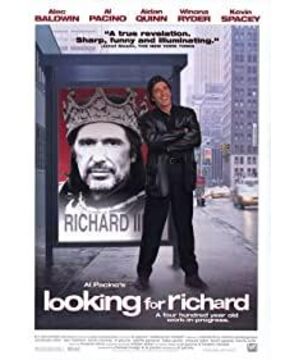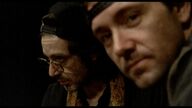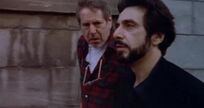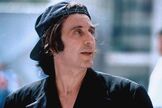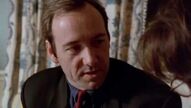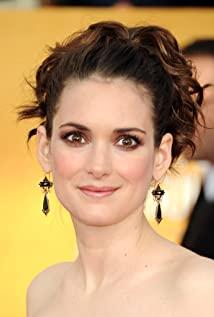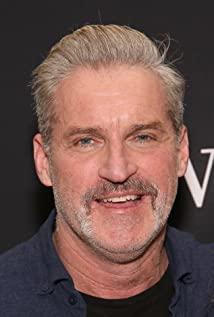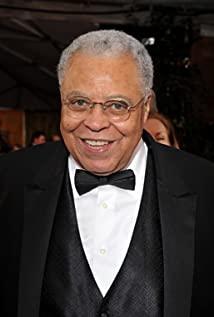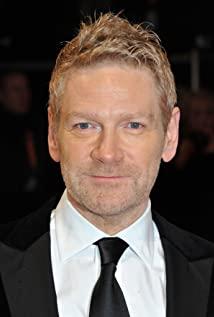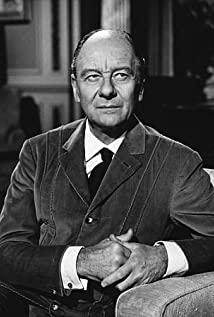1. Narrator
Our revels now are ended.
These our actors, as I foretold you were all spirits and are melted into air.....
...... into thin air. ......
And, like the baseless fabric of this vision ...... the cloud-capp' d towers, the gorgeous palaces, the solemn temples, the great globe itself...
Ye all which it inherit... shall dissolve...
And , like this insubstantial pageant...faded...
leave not a wisp behind.
We are such stuff... as dreams are made on...
And our little life ...... is rounded with a sleep
. Seemingly chaotic structures like we see this scene: towers soaring to the clouds, beautiful places, stately temples, the great globe itself, all that has been inherited... will all be melted away. Until this invisible celebration After that, everything is in ashes. We are like the characters in a dream, our life is a sleep.)
This is the almost identical voice-over at the beginning and the end of the film. Pacino narrates the words in a slow and calm tone. This is also the part that impressed me the most in the whole film. The picture at the beginning of the film is a gloomy and dignified monastery. At the end, there are various camera changes. In the end, it returns to the picture of the monastery. Pacino and his friends are walking towards the tower... The fallen leaves all over the floor seem to imply a scene. Tragedy...
This passage, which occupies a key position in the film but has nothing to do with Shakespeare, can be seen as the director's inner monologue. It is this text that makes the many plots scattered in the film instantly jump out of Shakespeare's "Richard III", and constitutes a story by itself, which is created by Pacino in the name of Richard about "Richard III". find" story. As the narrator of this film, he does not want to lead the audience to find Richard, but to tell the audience a story about "seeking". As for what to seek, it is not so important. It's Pacino's own movie. Rather than looking for Richard, it was Pacino looking for his position.
Before watching "Looking for Richard", after consulting the information to get a preliminary understanding of the film, I thought it was just a semi-documentary similar to "Ruan Lingyu". In order to express the image of a central character, a lot of "montage" was used. Interspersed with various scenes in front and behind the stage, through multiple narrative perspectives to create a dimension of the story, so that we as the audience can understand the characters from multiple perspectives. But this idea was quickly dispelled, because Pacino almost wrote, directed and acted by himself, while Guan Jinpeng was only the director, so the essence of the two films is completely different. Ruan Lingyu has nothing to do with Guan Jinpeng, but Pacino, the producer and director, is going to play Richard. Moreover, Ruan Lingyu is the same actress as Maggie Cheung, but Richard lives in a British Shakespeare play in the 14th century, so the time-space structure of this film is more complicated and chaotic.
Like this kind of film with multiple time and space structures, because its narrative angles are intertwined, the structure is often not easy to understand, so it is easy to become confused, so that the final audience of the film is still unclear. Pacino's debut as a director challenges this approach, which shows how ambitious it is. But he did succeed. The structure of "Looking for Richard" is very clear. Because of the large jumps in the shots, the audience may feel messy or uncomfortable in the first half, but they can quickly enter the official performance part of the play after watching the play. situation.
However, theater is different from film, how can we understand Shakespeare from film? Describing the essence of film as an artistic model of the era of technological reproduction that has lost its "aura", Benjamin believes that "it is not important for the actor to perform another person in the audience's present, but because he performs in front of the machine. "self", the theater actor is facing the audience, and the film actor is facing the cold machine - the camera. Soon after the film started, I had a big doubt. Most audiences label the film "documentary" or "half-documentary, half-drama", and if it is a documentary, the plot of the film is unintentional and natural. Is it right? If so, who is the guy with the camera? And all of this is captured by the invisible but "ubiquitous" camera that runs throughout the film. In the movie "Ruan Lingyu", we can see Guan Jinpeng's long shot. He intentionally exposes the camera to the audience. There is a shot of him directing everyone to film. He allows us to stand behind him and stand behind his camera to watch. his filming process. There is no camera in the whole "Finding Richard", but we can speculate that there must be a cameraman who always surrounds Pacino, in the street, in interviews, in casting, in crew discussions and even When Pacino was alone. In this film, Pacino was shot almost alone, and he was always the central point, but sometimes he was the director, sometimes the actor, and the narrator of the entire film.
2. Pacino's Purpose and Frederick
At the beginning of the film, after a large number of street interviews, Pacino revealed his reasons for shooting and his purpose. He believes that Americans generally do not understand Shakespeare. For such a symbolized character as Shakespeare, the more people are afraid to approach him because of his greatness. Everyone knows Shakespeare, but how many people actually read Shakespeare? Not to mention the issue of comprehension. On one level, understanding Shakespeare requires reading, because Shakespeare is the person who wrote the play. Although the play just moves the play from paper to the stage, it is not the same as the author's original intention, unless the author can do To self-directed and self-acted. After all, a screenplay is something that the playwright completes alone, while plays and movies are a huge team. Especially in movies, a large number of montages have deconstructed the whole story, and then after some processing, they are presented to the audience as deceptive "second-hand goods". Therefore, the movie is only an adaptation of the drama after all. I don't think we can understand the original book through the movie, let alone understand the author's heart.
Pacino apparently noticed this problem, so he wrote, directed and acted, and completed this multi-role transformation on his own.
He said that making this documentary film was just an attempt, and the original intention was to enable the audience to better follow the storyline and conception of the drama "Richard III". Record the filming process and let the audience see how they are done, so that the complex relationship between the characters in the play can be more easily expressed. But if we therefore think that Pacino was really shooting to understand Shakespeare, we would be very wrong. Watching the film, from the initial street interview to the subsequent series of casting and script discussions, seems to help us better understand Shakespeare and Richard. However, Pacino's purpose is by no means merely to interpret "Richard III" for us. As his friend, actor and writer Frederick said in the play: If so, why not go to a scholar to explain it directly to the camera?
From the first time I saw this film, I thought Frederick was very special, not only because he is the person with the most roles in the film besides Pacino, but also because he is a friend of Pacino, an actor and a writer, Is the only one on the show who made up the story with Pacino.
There are two most special plots about him,[1] One is in the first half of the film, after Pacino said "can anyone do better than Frederick?", he retorted quite excitedly Pacino: "So what did you say? You said you'd get a scholar to come and explain what happened to Richard and Annie directly to the camera. I'm telling you that's ridiculous. You're better than Columbia. And Richard III that any scholar at Harvard would have to know about, it's ridiculous. You make this documentary to show that the actor is real and the tradition understands and inherits Shakespeare, then you turn your head and say "I'm going to ask the scholar to explain This ", this is really ridiculous!" [2] One is the latter part of the film, Pacino half-jokingly leaned into his ear and said, "Frederick, you must help me, help me get this done. Documentary. This idea is so bad, so outrageous... I'm leaving" and then the camera quickly cuts to the river where what seems to be a rehearsal and what doesn't seem to be a rehearsal is still Pacino's voice: "I'm going to be king, Friedrich. K, let me be a king." Frederick was shouting, but he was talking about becoming a king, and in the picture, Frederick was kneeling in front of Pacino.
I suddenly thought of these two pairs of characters:
Richard - Buckingham
Pacino -
Frederick Frederick is a writer, so naturally he is the right-hand man who always follows Pacino. Constantly giving Pacino all kinds of advice—how to do the play, how to read the lines, how to understand Shakespeare. Buckingham is the key figure in "Richard III" that allowed Richard to usurp the throne. There are two lines here, and two stories are clear:
"Richard III" Buckingham assisted Richard to usurp the throne
"Looking for Richard" Frederick assisted Pacino after filming the documentary
Note the Pacino pointer here It is the actor Pacino in "Finding Richard", not the director Pacino.
So speaking of this, we can clearly see the two story structures in the film, and it is the director Pacino who has been standing behind the camera and controlling everything! It all comes from his director. Therefore, the purpose of Pacino is not simple. What we see is that Pacino, on the one hand, said to the camera humbly and plainly that he hoped to "communicate Shakespeare's passion with the audience" and help people better understand Shakespeare. He is trying his best to express his desire to perform.
In the film, Shakespeare was indeed not understood in the end, and the auditorium was still empty. From the perspective of the play "Richard III" itself, Richard's role is similar to the role in Shakespeare's tragedy. Most of the characters in Shakespeare's tragedies come from ancient Greek mythology. Most of them have a noble and prominent background, but their characters are paranoid, and at the same time, they are driven by a certain force involuntarily, which eventually leads to tragedy. Richard is the king's younger brother, a member of the royal family, but he is extremely inferior due to physical defects and has a distorted personality. He was hypocritical, ruthless and even rascal, and with Buckingham's help, he was able to make his ambition a reality, only to be destroyed. And Pacino in "Finding Richard" is also paranoid and arrogant. With the help of Frederick, he eventually made a documentary, but he was still silent. Even at the end of the film, the actors walked While in the monastery, the distinct autumn smell of fallen leaves seemed to indicate that this was another tragedy.
At the beginning of the movie, Pacino went to the stage to perform the play, but when he opened the curtain, he found that there was no audience, only Shakespeare was sitting in the audience alone, looking at himself calmly, he was very annoyed and said fuck, the film And so it unfolds...; and at the end of the film, still sitting empty in the theater audience is Shakespeare himself, and from the previous calm and confident expression to helpless, the voiceover is Pacino's voice "He didn't mean to , you kill me, since I did that to you." It's a naked declaration of war on Shakespeare, the voice of director Pacino.
The film begins with actor Pacino wanting to make people understand Shakespeare, and ends with making people understand director Pacino. As for whether Shakespeare can be understood or not, whether Richard can find it or not is irrelevant. It is important to guide
Playing Pacino has found himself.
"We are such stuff... as dreams are made on...
And our little life... is rounded with a sleep." ........... .
View more about Looking for Richard reviews


